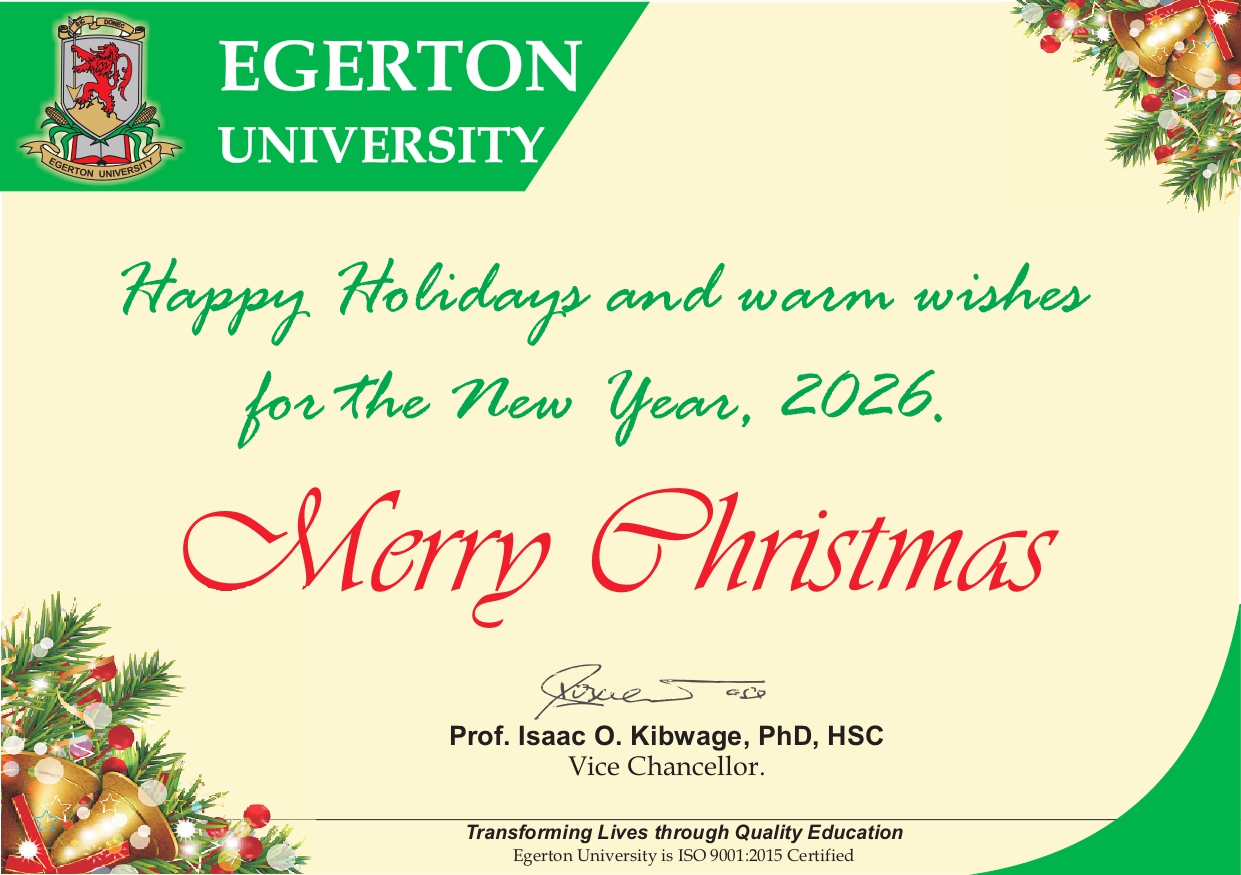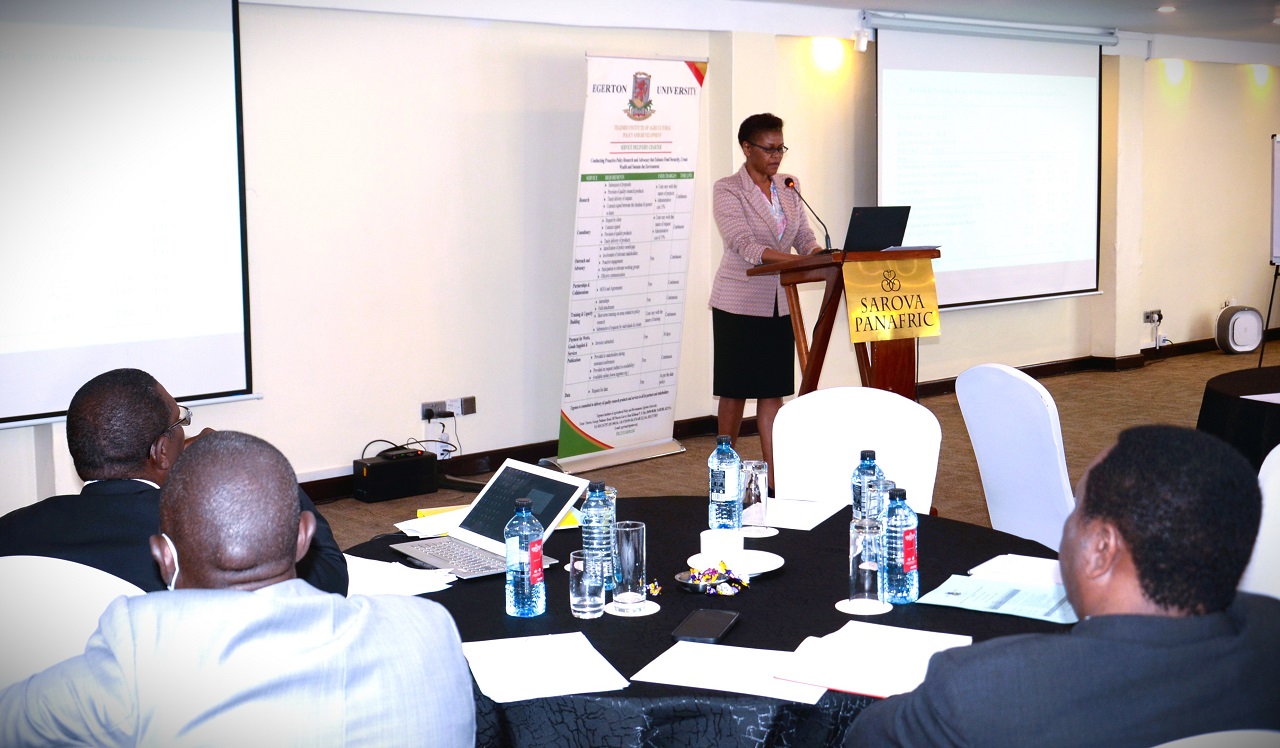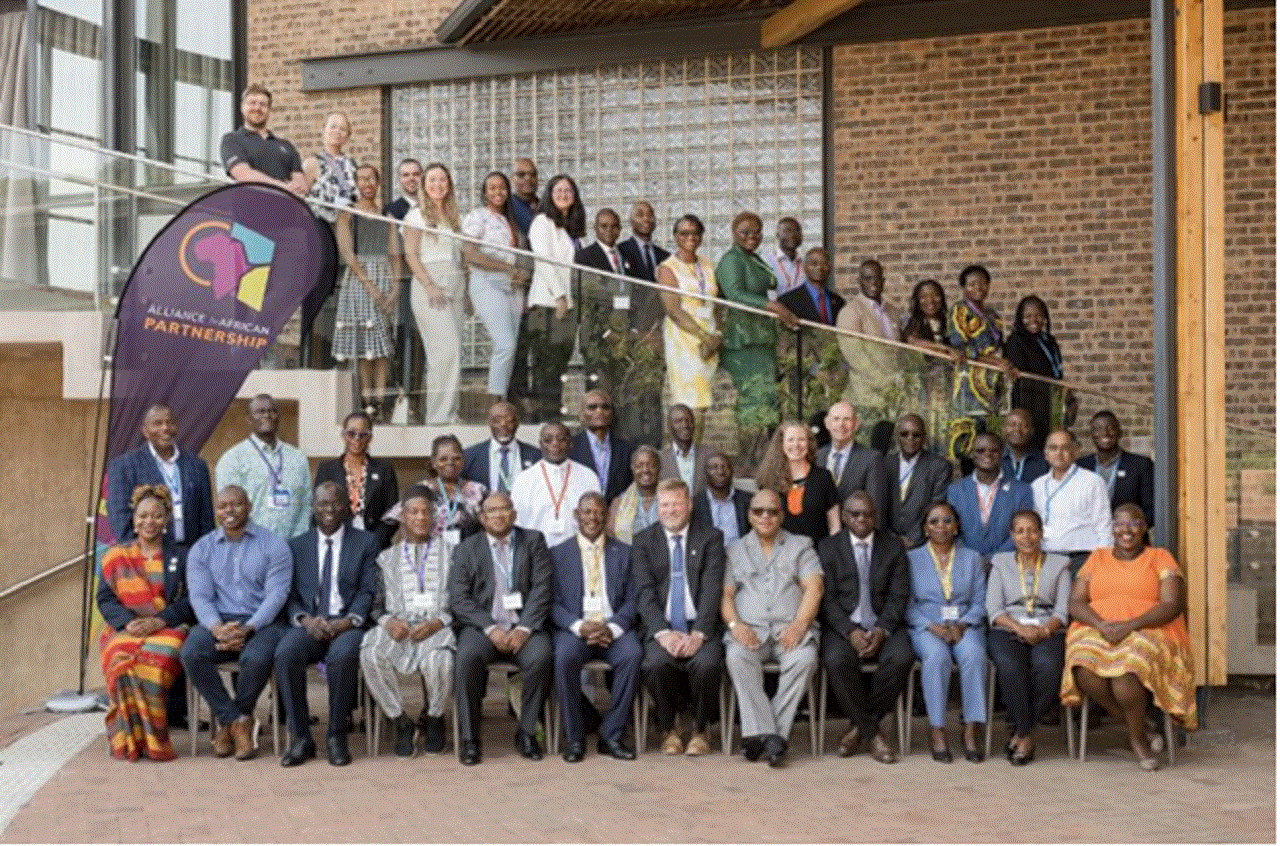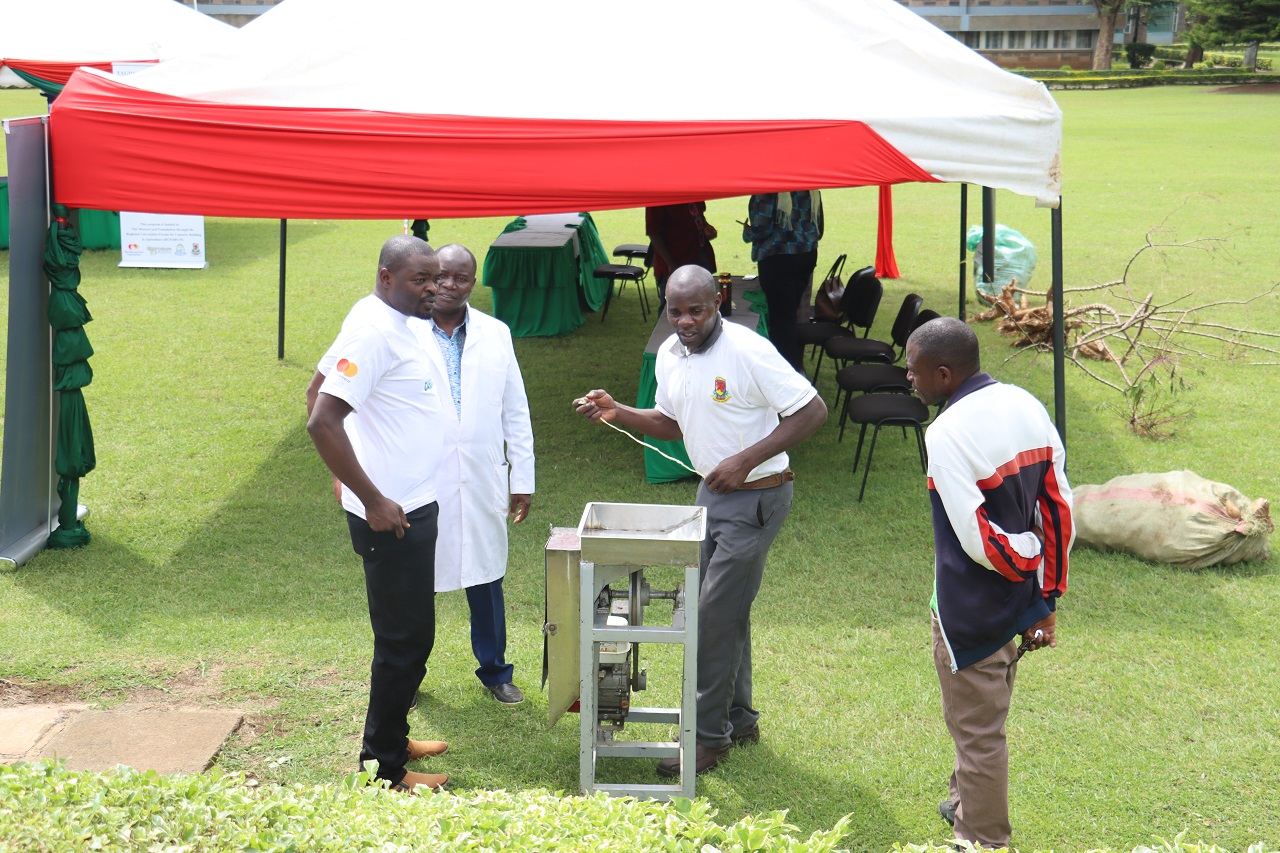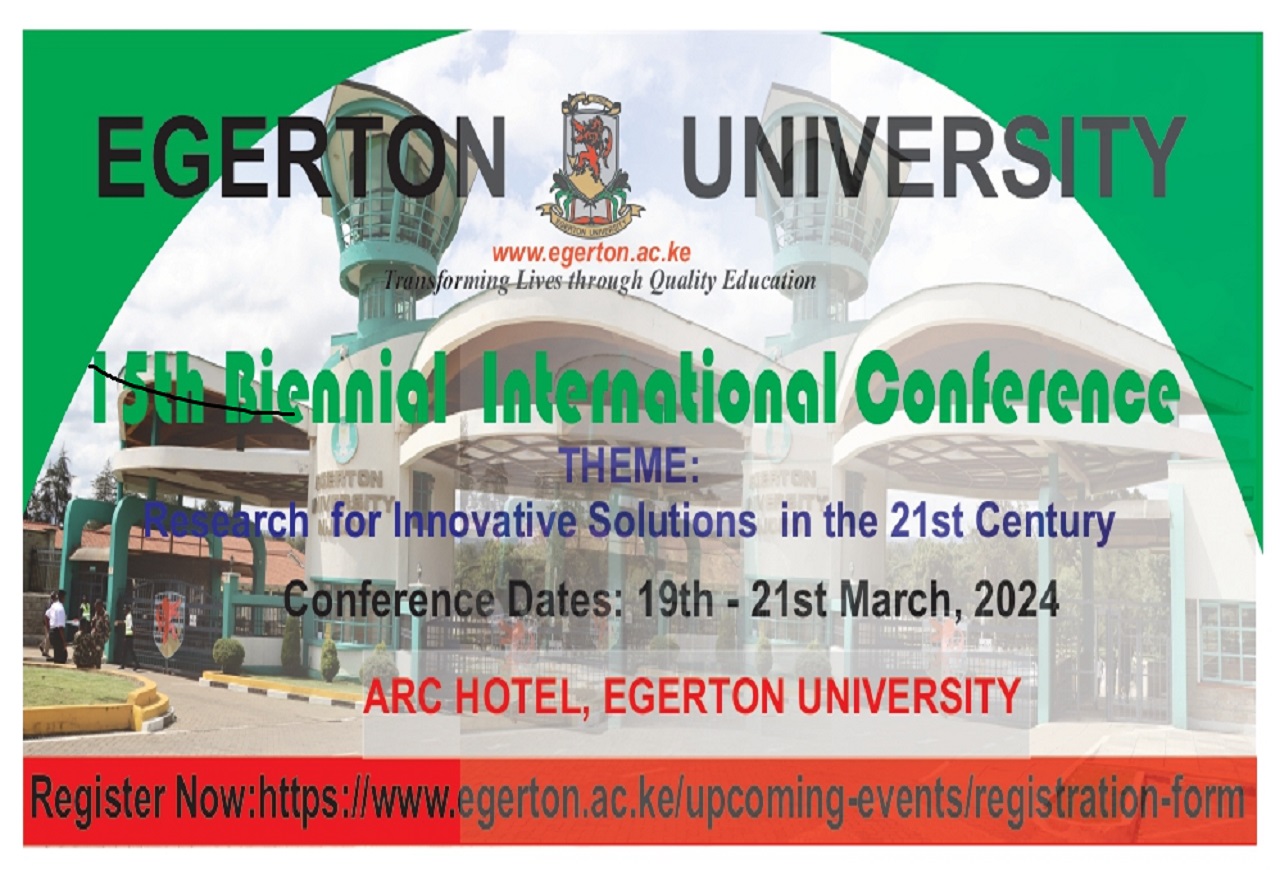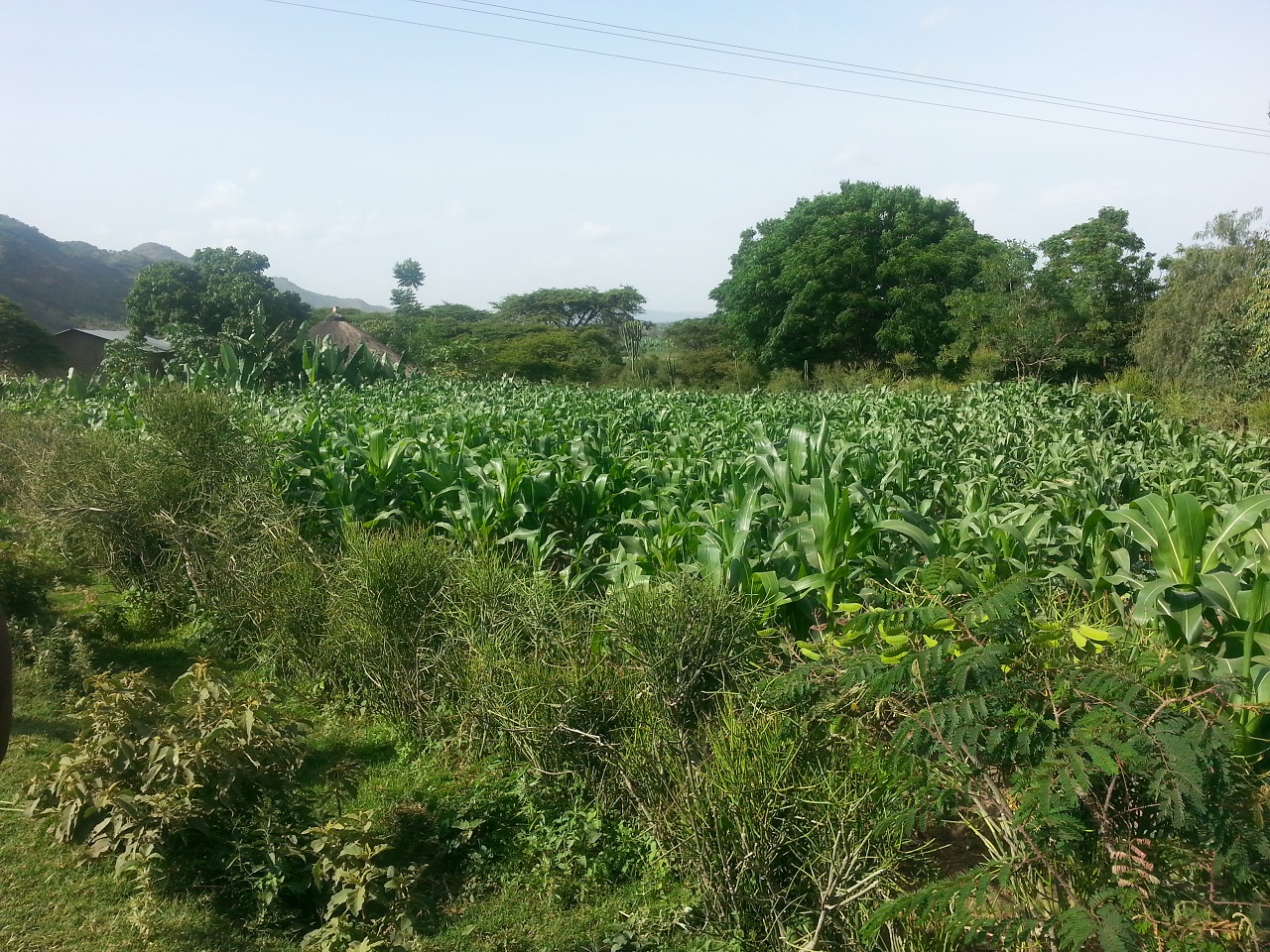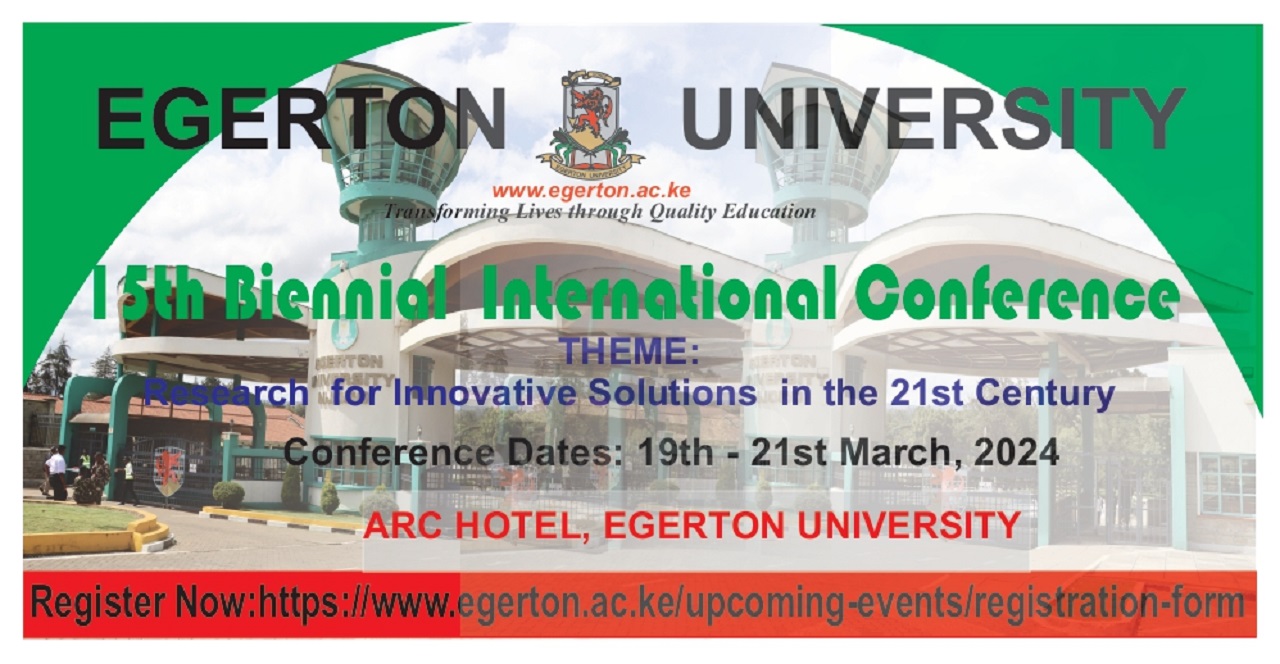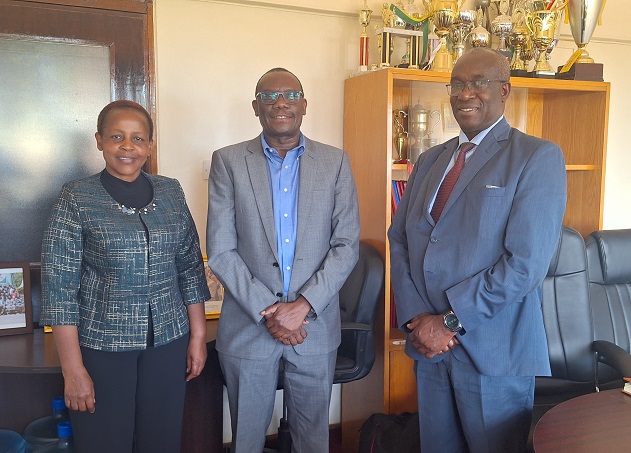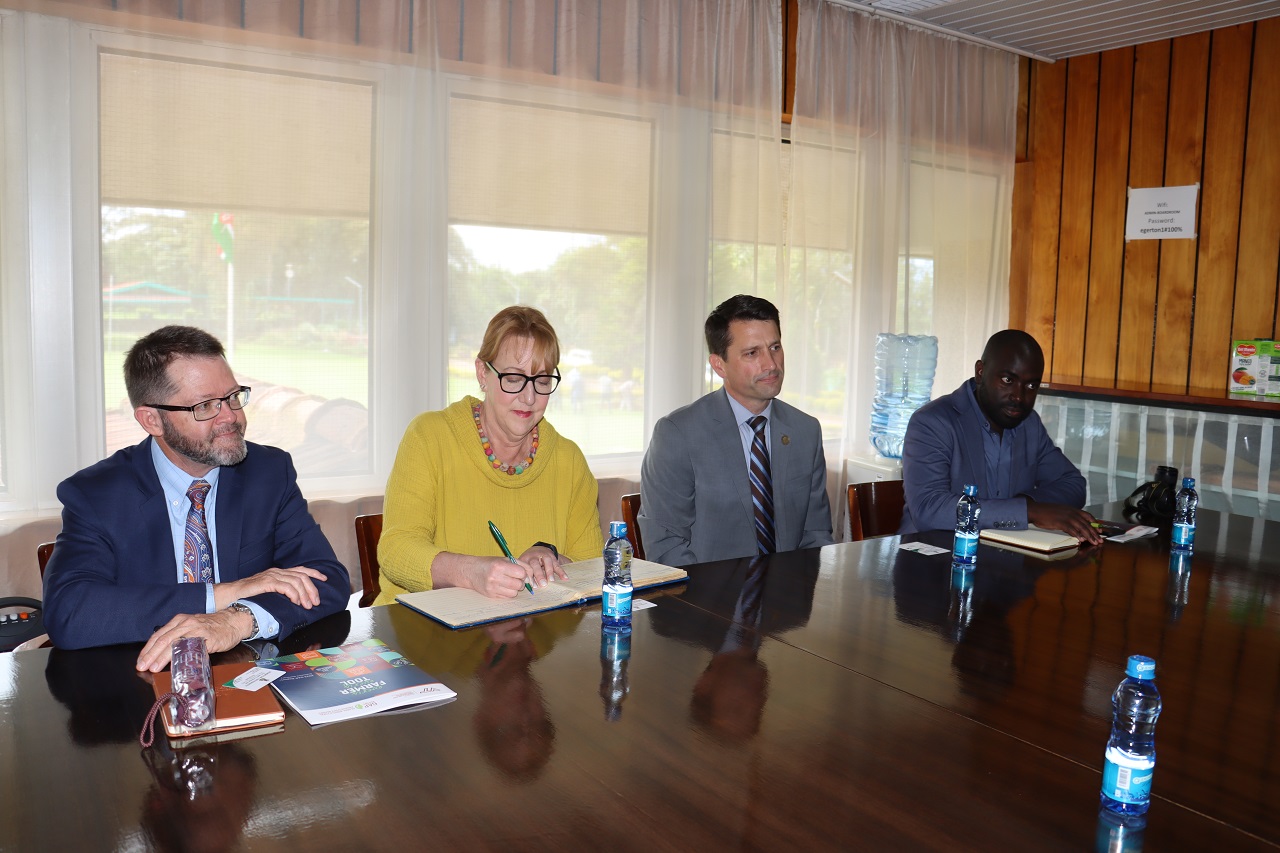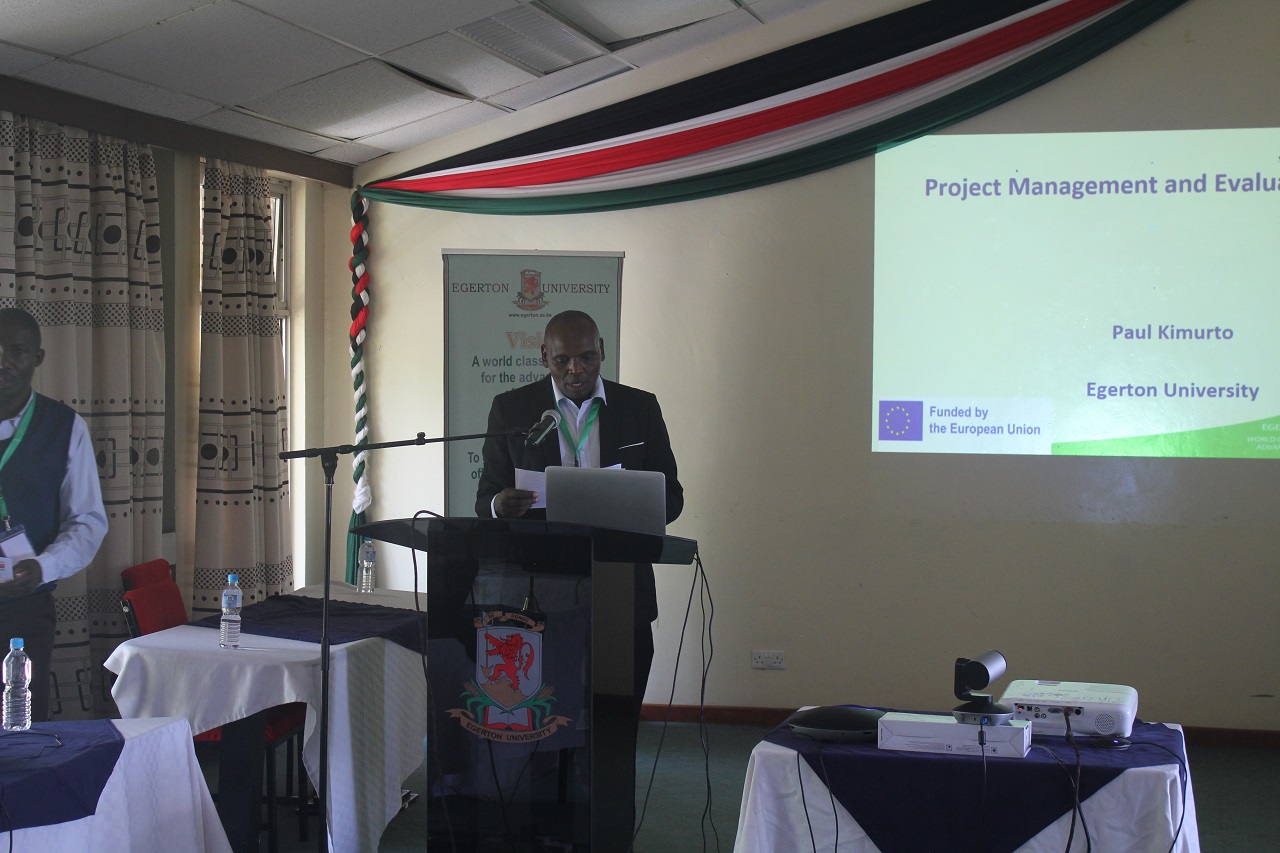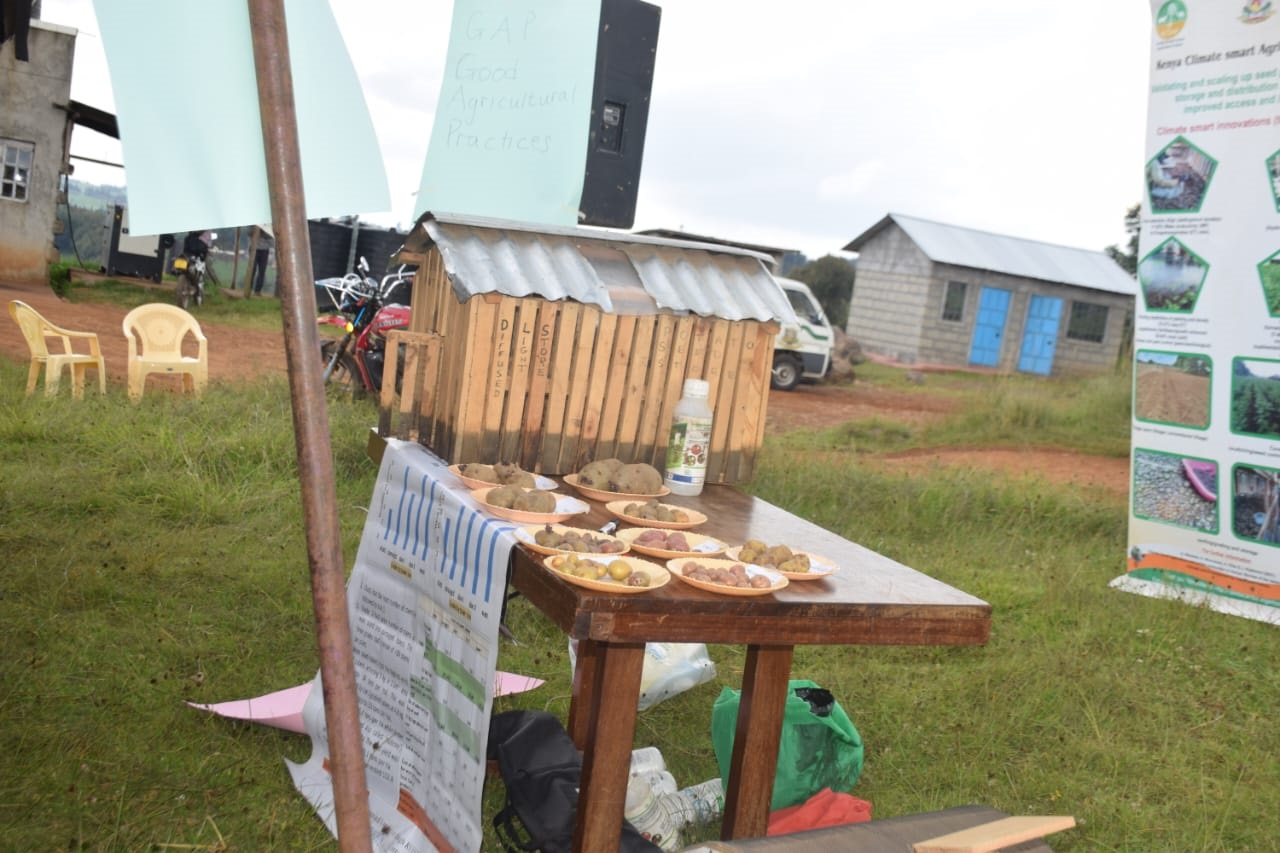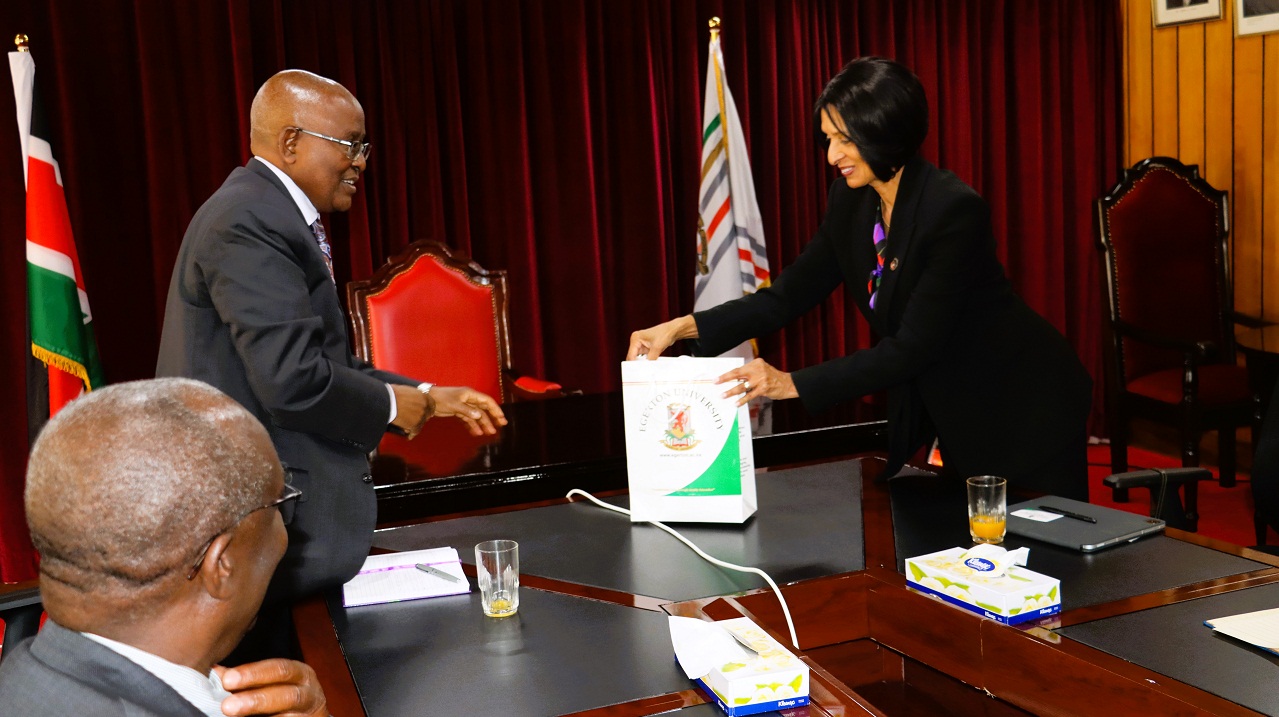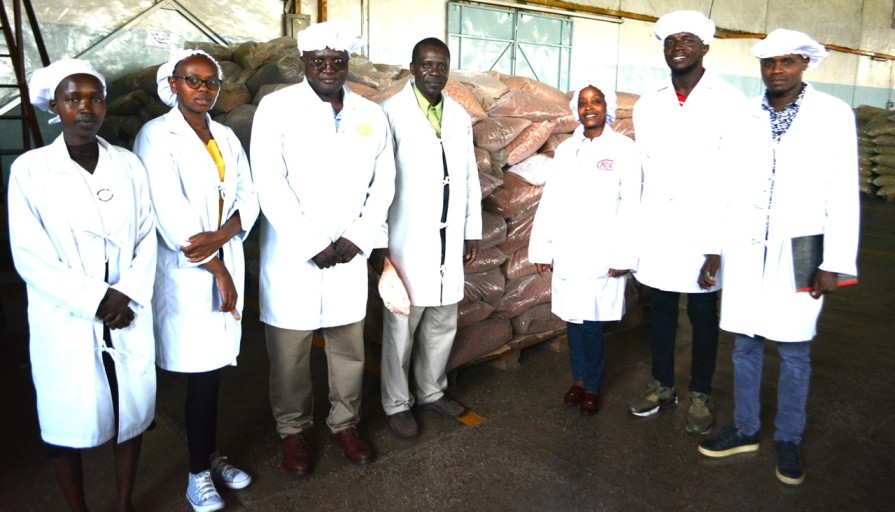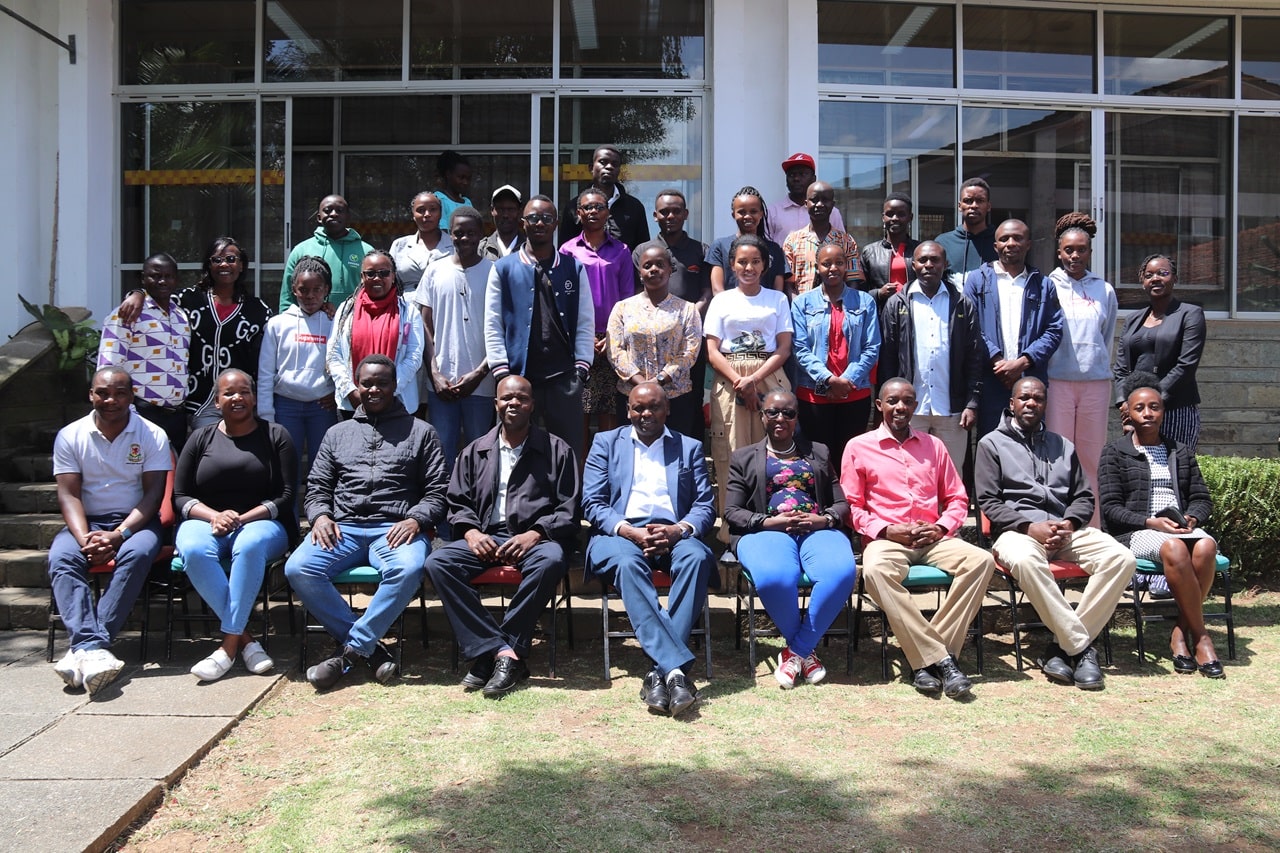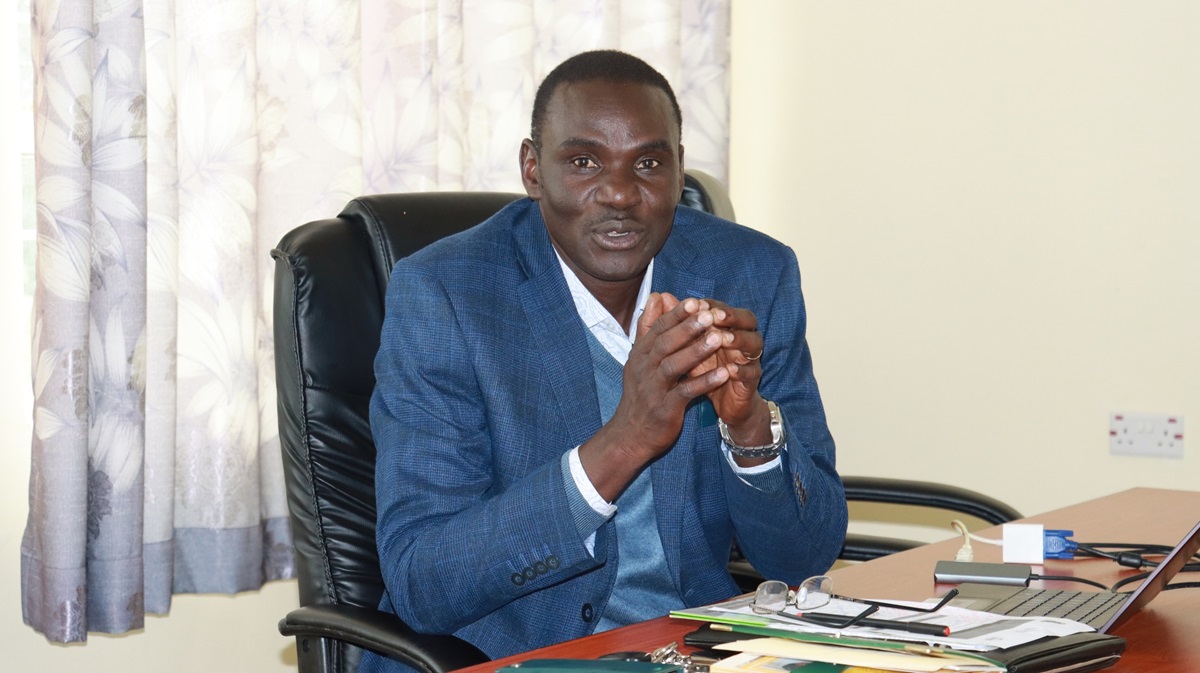-

-

-

The Cassava Cook Festival held in Nakuru kicked off with an insightful overview from Director of Research, Prof. Nancy Mungai, highlighting the substantial support provided by Ruforum and TAGDev to promote sustainable farming in the region.
-

In a step towards enhancing innovative agricultural practices and student training, Egerton University welcomed a delegation from the Arava International Centre for Agricultural Training (AICAT) on Monday, January 29, 2024. Led by the Deputy Vice Chancellor (Academic, Research and Extension), Prof. Bernard O. Aduda, Egerton University received the esteemed guests to discuss potential collaborations in the field of agriculture.
-

In a bid to foster collaboration and enhance educational initiatives, Egerton University's Director of Research, Prof. Nancy Mungai, embarked on a fruitful visit to Gulu University. The rendezvous aimed to explore synergies between the two institutions and advance transformative strategies in African agriculture, aligning with the overarching goal of contributing to Africa's growth and development.
-

Please sign up to attend the 15th Biennial International Conference taking place at Egerton University, ARC HOTEL, EGERTON UNIVERSITY from the 19th to the 21st of March, 2024. The theme of the conference is "Research for Innovative Solutions in the 21st Century."
Please click here for more information
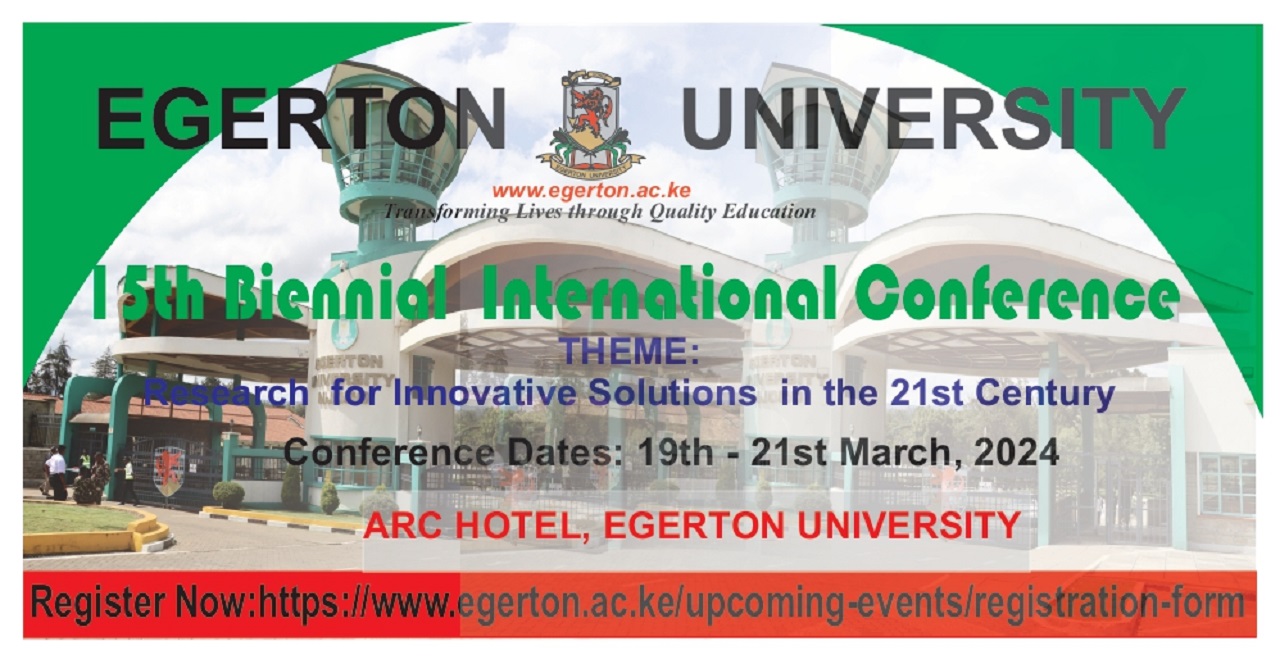
-

In the picturesque landscapes of rural Kenya, smallholder farmers are embarking on a journey towards sustainable agriculture. Armed with determination and resilience, they are weaving together a tapestry of practices aimed at enhancing crop yield while safeguarding precious soil fertility. Yet, amidst this noble endeavor, a crucial question lingers: What factors drive the adoption of these sustainable practices, and what are their real-world impacts?
Enter a team of researchers: Gideon Aiko Obare (Egerton University, Kenya), Wilckyster Nyateko Nyarindo (University of Embu, Kenya) Amin Mugera and Atakelty Hailu (University of Western Australia, Australia), and Their complex yet insightful study, published in a prestigious Agricultural Economics journal, offers a glimpse into the intricate dynamics of sustainable agricultural intensification (SAI) adoption among smallholder maize-legume producers in Kenya.
Through a meticulous three-wave panel survey, the researchers delve deep into the adoption patterns and outcomes of ten SAI practices, clustered into five distinct groups. Employing sophisticated statistical models, they dissect the plot-level choices of farmers, shedding light on the underlying factors driving adoption decisions.
What emerges from their analysis is a nuanced portrait of smallholder farming realities. Factors such as the frequency of extension contacts, farm labor availability, household wealth, and the education level of household heads emerge as pivotal influencers, positively shaping the adoption of SAI practices.
Conversely, challenges such as land tenure insecurity and poor soil quality cast a shadow, highlighting the complex interplay of socio-economic and environmental factors at play.
But the study's insights extend beyond mere adoption trends. By employing a multinomial endogenous treatment effects model, the researchers uncover a kaleidoscope of outcomes across the five SAI clusters.
From variations in crop yield and revenue to fluctuations in total variable costs and net income, the study paints a vivid picture of the diverse impacts of sustainable farming practices. Importantly, these impacts are not uniform, varying according to crop systems, geographical regions, and cropping years.
However, amidst this variability lies a glimmer of hope. The study challenges the notion of a one-size-fits-all extension approach, advocating instead for participatory policies that empower farmers to co-create and disseminate locally adaptable SAI bundles.
By tailoring interventions to suit the unique needs and preferences of each community, policymakers and extension agents can unlock the full potential of sustainable agriculture.
Indeed, the implications of this research are profound. As the global community grapples with the twin challenges of food security and climate change, initiatives that empower smallholder farmers to embrace sustainable practices take on added significance.
With insights gleaned from studies such as this, stakeholders are better equipped to chart a course towards a more resilient, equitable, and environmentally sustainable agricultural future.
Story by: Kurian Musa, Egerton University.
Email:
This email address is being protected from spambots. You need JavaScript enabled to view it. /This email address is being protected from spambots. You need JavaScript enabled to view it. -

Egerton University is gearing up to welcome scholars, researchers, and thought leaders from around the globe as it prepares to host the much-anticipated 15th Biennial International Conference from March 19 to 21, 2024. This year’s conference will be a blend of both virtual and face-to-face sessions.
-

Dr Leonard Oruko, a consultant engaged by the Regional Universities Forum for Capacity Building in Agriculture (RUFORUM), undertook a comprehensive assessment of the TAGDev 1.0 Program at Egerton University from 25th to 27th March 2024.
-

Egerton University hosted dons from Virginia Tech University from United States of America in a meeting that took place at the Main Campus, Njoro, Nakuru County, Kenya. In a move that saw a raft of issues discussed, the Deputy Vice Chancellor In charge of Academics, Research and Extension Professor Bernard Aduda led the discussions during the courtesy call at the Vice Chancellors Board room.
-

BREEDTECH is a three year (2024-2027) cross regional project which has brought together a consortium of Higher Education Institutions (HEIs). The project involves, ten partner and one associate partner institutions from seven countries (Kenya, Ethiopia, Palestine, Italy, Sweden, Serbia and Austria).
-

-

Egerton University and Bowie State University, USA, launched the 2024 Global Research and Extension Experience for Undergraduates in Kenya on 13 June at Egerton University. This year’s cohort comprises of fifteen (15) students drawn from nine (9) American universities.
-

Background information Potato (Solanum tuberosum) is the second staple food after maize in Kenya, playing a crucial role in the national government's commitment to food security through BETA in Agriculture.
-

It is 12.30 pm. The Bowie University President arrives at Egerton University. In the serene corridors of Egerton University, a palpable buzz filled the air as Bowie University President walked into the Vice Chancellors Chambers to explore new avenues of collaboration.
-

Ever tasted meat from a vegan diet? This innovation drives a young Egerton University innovator striving to ensure safe, sufficient food, promoting a food-secure society.
-

Experts from the Kenya Plant Health Inspectorate Service (KEPHIS) have equipped students at Egerton University with crucial skills in food safety and aflatoxin management.
-

Egerton University has appointed Professor George Owuor as the new Director of Research and Extension following a competitive selection process. Prof. Owuor brings with him a wealth of experience in academia, research, and leadership, positioning him as a key figure in advancing the University’s research agenda.
Page 2 of 2





